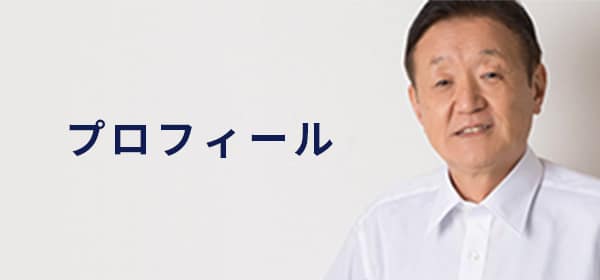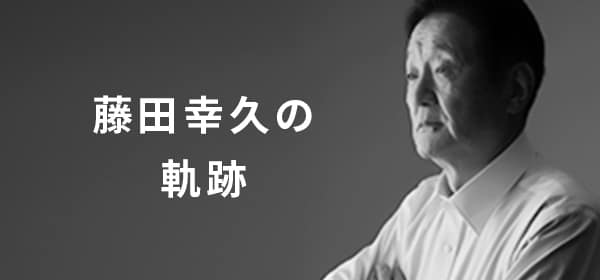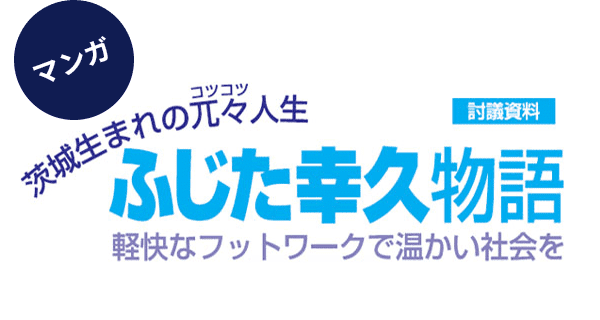ブログ
Masukomi Shimin (Media and Citizen)" Don't forget Myanmar andCambodia" (tentative translation)2022年06月02日
マスコミ市民」の「ミャンマー、カンボジアを忘れないで!」を英訳しました。急場の荒訳で、後程修正します。
Masukomi Shimin (Media and Citizen)" June 1 2022
"Don't forget Myanmar and Cambodia"
Ukraine opened the hearts of Japanese people
Russia's invasion of Ukraine has become the greatest global tragedy of the century and has brought about a major shift in Japan. Japanese diplomacy steered to blame Russia at the expense of Northern Territorial negotiations and energy supply. She accepted 878 Ukrainian refugees and granted 445 of them a status of residence for specific activities that would allow them to stay for one year. In the future, settled refugees status from other countries are likely to be increased, thus the current 47 people will be significantly increased.
In 1979, I was involved in the establishment of Japan's first refugee support NGO, the Association for Aid and Relief(AAR) by supporting Mrs. Yukika Soma. Mrs. Soma's theme was "Opening the Hearts of the Japanese people". However, the number of settled refugees, which was three at that time, has increased by only 44 in 43 years! The courage and actions of the Ukrainians have opened of the Japanese government and the hearts the people which are closed.
National Army of Myanmar are killing their own people
However, there are other countries that are, in a sense, more pitiful than Ukraine. They are Myanmar and Cambodia. In Myanmar, the number of civilian deaths since the military coup d'etat in February last year is enormous, and the Institute of Strategic Policy Research (ISP Myanmar) and Radio Free Asia report that more than 5,600 people have died. It is said that there are about 610,000 domestic refugees and refugees who left the country (UNHCR). The major difference is that while 2435 Ukrainian civilian were killed by the Russian army, an enemy country, in Myanmar they were killed by the National Army and police of their compatriots. It was a coup d'etat that overturned the result of the big victory by the National League of Democy (NLD) led by Mrs. Aung San Suu Kyi in the general election in November 2020. The Citizens organized non-resistive demonstrations nationwide to cope with it. The scenes of the barbaric acts by the soldiers and police officer and resistance by the people were shown live both inside and outside the country. The military felt threatened by it and intensified the suppression by the armed forces, while the citizens resisted by Civil Disobedience Movement (CDM). National Railways staff, doctors, teachers, tax officers, etc. have abandoned their workplaces, and tax payment refusals and electricity bill payment refusals have spread. Most of the NLD parliamentarians are hiding abroad or in border areas, and 107 parliamentarians and local parliamentarians have been arrested. NLD established the National Unified Government (NUG) and set up offices in seven countries, including Japan. In May last year, the citizens organized a People's Defense Forces (PDF) for self-defense and launched counterattacks. The National Army expanded their attacks in PDF's strong holds of ethnic minorities and rural areas. Immediate murder, indiscriminate shooting, burning, torture, and rape are conducted. Army Commander in Chief Gen. Min Aung Hlaing boasted that he would "annihilate the Democrats" on the Army Memorial Day on March 27th.
A global encircling network is sieging the National Army
The international encircling network for Russia is expanding, and that for the Myanmar National Army
is also expanding. Immediately after the coup, the Japanese Foreign Minister Toshimitsu Motegi called for the release of Aung San Suu Kyi and others, and declared that new ODA projects would be suspended. Even Koji Yamazaki, the Commander in Chief of the Grand Japanese Self-Defense Forces, joined the statement by the top military leaders of 12 Western countries on March 27 , "the army has a responsibility to protect its own people, not to harm them."
However, Hideo Watanabe, the Chairman of the Japan-Myanmar Association, who met Gen. Min Aung Hlaing at the time of the coup d'etat, showed off the "relationship with the army", the Japanese ambassador, Ichiro Maruyama declared "quiet diplomacy", and Japanese Self-Defense Forces accepted to train four military officers of Myanmar National Army. These gave the impressions both inside and outside the country that Japan is closer to Myanmar National Army.
On the other hand, the Diet (parliament) adopted a parliamentary resolution for Myanmar in June last year in both houses of the Diet. It called on the Myanmar National Army to immediately stop the atrocities against civilians and immediately release Aung San Suu Kyi Chi and others, and called on the Japanese government to conduct diplomacy to restore democratic political system. This was initiated by the bipartisan "Parliamentarians League to support Democratization of Myanmar". They met with the National Unity Government (NUG) and made successive requests to the Japanese government. On February 9, this year, 79 bipartisan parliamentarians and Japanese and foreign organizations submitted a request to Prime Minister Fumio Kishida. Early approval of the Myanmar National Unified Government (NUG) and full return to the democratic government that won the 2020 general election, recognition of the refugee status for Myanmar people coming to Japan and recognition of residence status for Myanmar people residing in Japan, suspension of ODA that benefits the armed forces, and curbing investment by Japanese companies in military-related companies and compensation for Japanese companies withdrawing from Myanmar.
International efforts to support these policies are accelerating. President Byden of the United States invited the leaders of eight ASEAN countries to hold a special summit meeting from May 12, but did not invite the representative of the Myanmar military administration alone. Conversely, Deputy Secretary of State Wendy Sherman met Foreign Minister Zinma Aung of the National Unty Government (NUG) to clearly support the NUG.
In the joint statement, "Full support for ASEAN's peaceful resolution efforts, including contacts with all the parties concerned in Myanmar by the ASEAN Special Envoy," was stated. Cambodia's Foreign Minister Prak Sokhonn, the ASEAN Special Envoy revealed a visit to Myanmar within a few weeks.. Prior to that, Cambodian Prime Minister Hun Sen, the Chairman of ASEAN, urged Gen. Min Aung Hlaing to allow the special envoy to meet Aung San Suu Kyi.
Opportunity to stop Japan's aid to benefit the National Army
I have been involved in Japan's aid to Myanmar in two ways.
- At the request of Mrs.Yoko Kitazawa, I established a bipartisan group of parliamentarians to support the "Jubilee 2000 Debt Cancellation Campaign", and in May 2000, as its representative I submitted a request to Prime Minister Keizo Obuchi. A few days before he collapsed due to a cerebral infarction. It was the start of the debt cancellation policy of the Japanese government for heavy indebted poor countries (HIPCs).
- In April 2012, Japan, the largest creditor country, exempted the debt of 300 billion yen by Myanmar. The remaining 190 billion yen was replaced with a new loan and the repayment was postponed. At that time, I was the State Minister of Finance in the Democratic Party Government. Debt waiver is premised on the progress of democratization, and the decisive factor was the transfer to the civilian government in 2011. Since then, large-scale infrastructure projects such as the railway between Yangon and Mandalay and the sewerage system in Yangon have started. The total amount of support was close to 2 trillion yen.
The military administration waged a coup and abandoned the premise of democratization. Therefore the Japanese government has responsibility to review its support.
According to a United Nations' Report on the Economic Benefits of the Myanmar Armed Forces, Myanmar Economic Holdings Limited (MEHL) and Myanmar Economic Corporation (MEC) under the armed forces and their more than 100 subsidiaries boast the highest profits in the country. However, most of the huge income is not included in the government budget, but is in the income of the armed forces. Their business is diverse, including ruby and jade mining, cement manufacturing, and finance. It has the same structure as the Pol Pot faction, which carried out the genocide in Cambodia, monopolizing the right to sell jewelry and timber for their war expenses. After peace in 1993, Finance Minister Sam Rainsy (later the leader of the Cambodian Rescue Party) carried a drastic reform by risking his life to switch the timber tax revenue held by the military to governors to national revenue. Ms. Yuka Kiguchi, Secretary-General of Mekong Watch, points out the relationship between Japan's debt cancellation before democratization and the armed forces. In order to prevent moral hazard due to debt cancellation, the aid was limited to the purchase of goods agreed by the two governments, and the Myanmar government was obliged to report to the Japanese government. However, of the three years of debt relief assistance from 1995, at least 5 billion yen was unclear money without a receipt. In addition, amongst those projects which have receipts, about 2.6 billion yen was used to purchase heavy machinery for felling of the Myanmar Timber Corporation, which is a source of military income. At the G7 Foreign Ministers' Meeting in May last year, Foreign Minister Toshimitsu Motegi confirmed that "we would prevent the ODA to support the armed forces-led system" and "told the Myanmar side that ODA could not be issued as it is. However, there is no evidence that the Japanese government has stopped. The Minister of International Cooperation of the NUG has pointed out that "the armed forces are attacking the people from the buildings built by the Japanese ODA."
Rather, Japanese companies who are sensitive about the image of Japan are going ahead to withdraw from Myanmar. Withdrawal of Kirin Beer from a joint venture with a military company (MEHL), withdrawal of Mitsubishi Corporation and ENEOS from the Yetagun natural gas mining business. It is irrelevant that 30% of the recent questionnaires to Myanmar employees of Japanese companies support the suspension of ODA from Japan and 60% support the suspension of Japanese financial aid to military companies.
Cambodia waged a political coup before the change of government
While the Myanmar army caused a coup after a big defeat in the general election, it was Cambodian Prime Minister Hun Sen who planned a political coup before the general election. In the 1993 general election after the peace in Cambodia, when the Funcinpec Party led by Prince Ranariddh became the first party, he introduced a two-person prime minister system and seized power. After the 1997 general election, the Prime Minister Ranariddh was expelled from the country by Hun Sen by a coup d'etat. After that, the popular Sam Rainsy formed the Cambodian Rescue Party (CNRP) in collaboration with Kem Sokha, and won almost half of the total votes in the 2013 general election and the 2017 local election.
Then, Prime Minister Hun Sen held a political coup before the 2018 general election, which is expected to be defeated. In September 2017, Kem Sokha , the CNRP leader, was arrested for national treason, and in November, the Supreme Court decided to ban 118 CNRP parliamentarians and other political leaders from political activities for five years. It was a coup d'etat that the Supreme Court, by the will of the Prime Minister, deprived right of the MPs who had been elected by the people. In addition, the Supreme Court ordered the CNRP to dismiss the party. The 2018 general election was virtually one party election by the Cambodian People's Party (CPP) and it occupied all 125 seats. In response, Western countries have imposed the following strong sanctions, and the Japanese government did not recognize it as legitimate and did not dispatch the election monitoring team. In August 2020, the EU excluded imports of Cambodian clothing and shoes from trade incentives because of human rights infringement. Last December, the United States recognized Cambodia as a weapons ban country and decided to ban the export of high-tech products.
For 37 years since 1985, Prime Minister Hun Sen has maintained his power by making full use of means such as assassination, imprisonment, and expulsion by the military and the police. But in recent years, he attack oppositions by the use of SNS, etc. Sam Rainsy describes what happened in "The Geopolitics" as follows: Prime Minister Hun Sen provided a large amount of money to a young woman who was a supporter of the CNRP and a site called Celebrity to attack the opposition party. Approximately 400 communications between Prime Minister Hun Sen and a woman took place on the Line. When Sam Rainsy posted it on Facebook, he was accused by Hun Sen. Not only was the accusation used as an excuse to dismiss the CNRP party, but he was sentenced to a $ 1 million fine and his house in Phnom Penh was confiscated. Sam Rainsy urges the Line corporation in Japan to acknowledge the fact that communication had existed and thus save him. Like Ukrainian operation with full use of the SNS and the relationship between President Trump and Twitter, Line's response will have a major impact on Asian politics. In Cambodia, a local election will be held on June 5, but it is said that CNRP's predecessor, the Candle Light Party, has rapidly increased its support, and candidates in most constituencys. On May 12, the European Parliament adopted a resolution calling on the Cambodian government to stop persecuting and threatening political opponents, labor union members, human rights activists and journalists prior to the June local elections and next year's general elections. They also accused the Cambodian Supreme Court of dismissing the Cambodian Rescue Party (CNRP) in November 2017 and called for the withdrawal of charges against CNRP leader Kem Sokha, former leader Sam Rainsy and others.
Changes in the status quo by force is not allowed inside a country
Prime Minister Kishida of Japan said in March in Cambodia, "We do not allow force to change the status quo in any region of the world." This is referred to the assumption that Russia, China, etc. might "change the status quo from the outside". But in view of the recent attacks and crackdowns on citizens around the world, " political opinion is increasing that “change of the status quo by domestic force" also should not be allowed. "Post-election coup d'etat in Myanmar" and "pre-election coup d'etat in Cambodia" are typical examples.
In March, the United Nations High Commissioner for Human Rights (OHCHR) recognized humanitarian infringement by the Myanmar Armed Forces as a war humanitarian crime. They mentioned the following examples such as attacked civilians in densely populated areas with air bombs and large weapons, and arbitrarily arrested them., Torture, human shield, burnt death, etc. In other words, the armed suppression of their own people by their own army was recognized as a war humanitarian crime. In January this year, the United States, the United Kingdom, Canada and others decided to sanction the chief prosecutor, the Supreme Court judge, and military personnel who decided to prosecute Aung San Suu Kyi.. It is legal foundation which does not allow changes of the status quo by force in a country. The invasion of Ukraine also disclosed the dangers of personal dictatorship, including Russian President Putin, Cambodian Prime Minister Hun Sen, Myanmar's long-term military clan, and North Korea's General Secretary Kim Jong-on. Personal dictatorship tends to use power to change the status quo both internally and externally, with the risk of involving a wider regions of the world and cannot be overlooked.
Both politicians and citizens are risking their lives
The above-mentioned political opinion has increased because citizens and politicians are fighting for their lives in Ukraine, Myanmar, Cambodia, etc. The Ukrainian citizens never took a step back in the fight against the mighty Russia, and the citizens of Myanmar and Cambodia continue to fight the mighty and brutal army and police. They move our hearts. On the other hand, some of my friends who were politicians and activists in Cambodia and Myanmar have been killed in the last 20 years or more. Sam Rainsy himself has escaped the danger of assassination many times, and the French government has issued an arrest warrant for a Cambodian who attacked him. The footage of a Ukrainian female parliamentarian with a gun who stayed on in Kieu was also spectacular. As a member of parliament, I have only felt dange rs twice. I tell myself that I must support these citizens and politicians who are fighting for their lives.
To Japan's diplomacy supported by other people
On May 19 NHK(Japanese State TV) reported a surge in civilian killings in rural areas by the Myanmar Army and commented "While Japan insists on freedom and democracy with the West, it is not permissible for Japan to leave Myanmar overrun by the military. Now that the West is absorbed in Ukraine, Japan's involvement is required. " The invasion of Ukraine created an environment in which Japan could change its policy. The excuse that "if you push the dictatorship government more, they will become closer to China" is no longer valid. For Myanmar, it is all about fulfilling the request to Prime Minister Kishida by the "Federation of Parliamentarians to Support the Democratization of Myanmar" on February 9 which was mentioned earlier For Cambodia, it is the implementation of the points required by the EU parliament and others. Implementing these is consistent with Kishida's diplomacy, which has been supporting Ukraine and sanctioning Russia. Gaining true trust from the people of other countries in this way is also Japan's greatest security.
- アーカイブ
-










